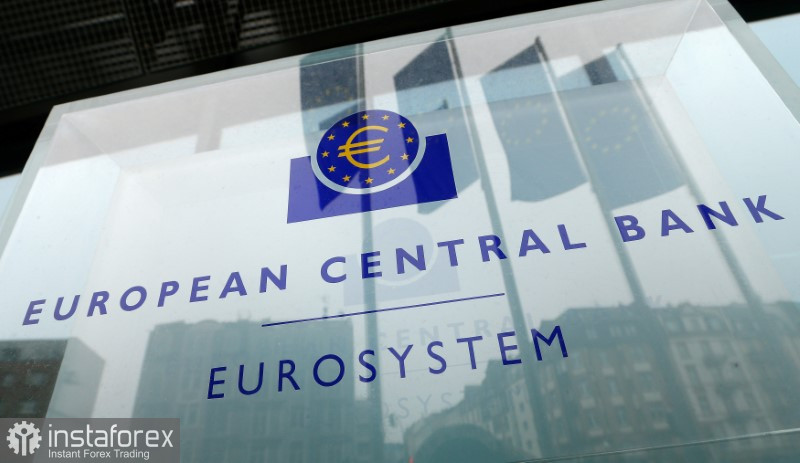The euro recouped its losses on Friday, but the future demand for risky assets remains highly uncertain. Global central banks intend to continue raising interest rates. As long as the fight against high inflation continues, the euro will hardly go above 1.1000. Let us discuss the technical picture a bit later.

Now, a few words about an interview with the Chief Economist of the Organization for Economic Cooperation and Development (OECD), Clare Lombardelli. She thinks that the European Central Bank is facing a challenging task. It has to decide when to halt the rate hikes as it is very difficult to assess the future impact of tightening in the current circumstances.
Clare Lombardelli stated that the structural changes that occurred after the last cycle of borrowing cost increases made it difficult to evaluate the impact on the economy. This also blurs the overall picture for central banks. Clare Lombardelli said in the interview that it was difficult to determine the future monetary policy. It is very challenging to assess the impact of a tight policy and recognize the peak of this impact.
Lombardelli also noted that the problem in the eurozone could be explained by intense pressure on core prices despite the decreasing headline inflation indicators. This issue has been widely discussed recently by officials of the European Central Bank, including its President, Christine Lagarde.
The politician has stated that Europe is facing a truly challenging inflation problem. The unpopular tightening of monetary policy, which is necessary to cap inflation, is needed now. Seeing how many households are currently coping with high prices is truly painful.
It is evident that this is a crucial moment for policymakers who clearly indicated last week their intention to raise interest rates once again at the end of this month. Therefore, there are no indications regarding what will happen after the July meeting. Last week, ECB Vice President Luis de Guindos said that most core price indicators had started to show some signs of softening, though very insignificant.
His colleague, Mario Centeno from Portugal, stated on Sunday, that core inflation was not decreasing as rapidly as overall inflation. Bundesbank's hawkish President, Joachim Nagel, also insisted that core inflation remained a source of concern. Another interview with this policymaker will take place today, so I recommend paying attention to it.
Notably, core inflation in the eurozone advanced to 5.4% in June, while the overall indicator noticeably slowed down to 5.5%.
The technical picture of EUR/USD. To maintain control, buyers should push the price above 1.0970 and consolidate there. This will allow a move towards 1.1010. From that level, it is possible to climb to 1.1060. However, it will be difficult to do this without new positive data from the eurozone. In case of a decline, major buyers are likely to become active only around 1.0930. If there are no buyers at that level, it would be good to wait until the price reaches a new low of 1.0900 or open long positions from 1.0870.
Meanwhile, demand for the pound sterling remains quite high, indicating the continuation of a bullish market. The pair may rise after bulls gain control over the level of 1.2840. A breakout of this range will strengthen hope for a further recovery towards 1.2875, after which we can talk about a more significant surge towards 1.2910. In case of a decline, bears will attempt to take control around 1.2795. If they succeed, a break below this range will strike a blow to bullish positions and push GBP/USD towards the low of 1.2755, with the prospect of reaching 1.2710.
 English
English 
 Русский
Русский Bahasa Indonesia
Bahasa Indonesia Bahasa Malay
Bahasa Malay ไทย
ไทย Español
Español Deutsch
Deutsch Български
Български Français
Français Tiếng Việt
Tiếng Việt 中文
中文 বাংলা
বাংলা हिन्दी
हिन्दी Čeština
Čeština Українська
Українська Română
Română

